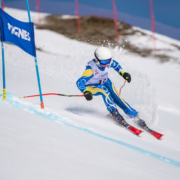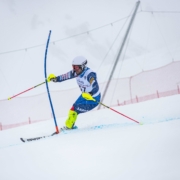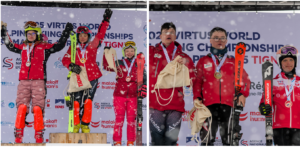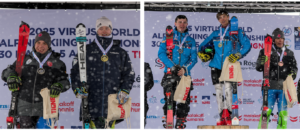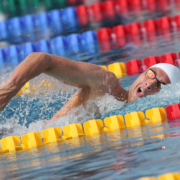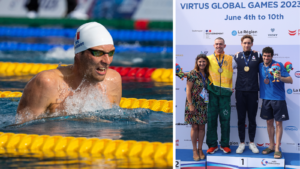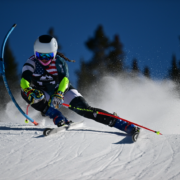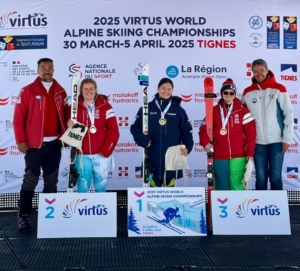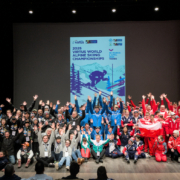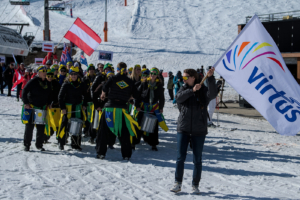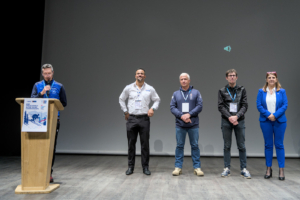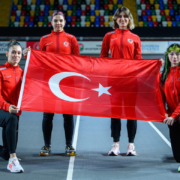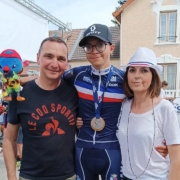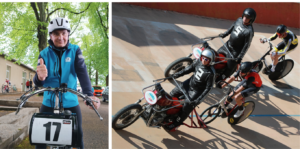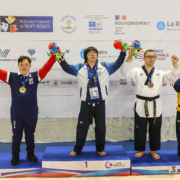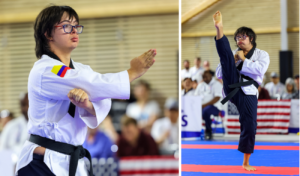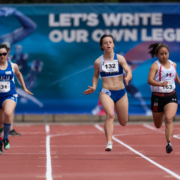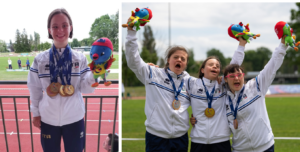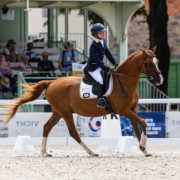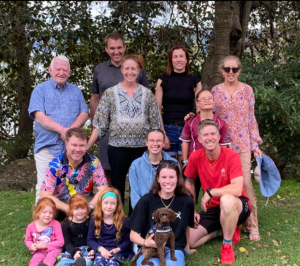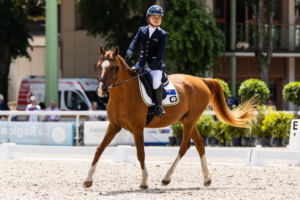Double and Triple Medalists Shine as Tignes 2025 Enters Final Stages
The 2025 Virtus World Alpine Skiing Championships in Tignes, France, are reaching their thrilling conclusion, and the Giant Slalom event proved to be a showcase of dominance, consistency, and elite performance. As the race unfolded, several athletes continued their medal-winning streaks, cementing their status as the top contenders of the tournament.
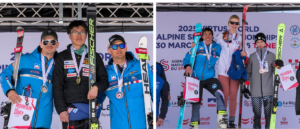
Winners of II1 Men’s and Women’s Gaint Slalom race. Photo Credit: Geoffroy Wahlen
In the II1 women’s category, Amelia Selznick (USA) captured another gold, adding to her Super G victory and reinforcing her status as one of the standout performers of Tignes 2025. Right behind her, France’s Mélanie De Bona claimed silver, adding to her already impressive gold in slalom and silver in Super G. Meanwhile, Karina Zakirova (VNT) secured bronze, marking her second podium finish after her Super G bronze.
“The race course was great, the snow wasn’t that soft. The sun shining too brightly on the snow did slow us down a little but I enjoyed it the race,” said Amelia after winning the gold today.
The II1 men’s category saw a brilliant performance from Aoshi Kanazawa (JPN), who claimed another gold after his slalom win and Super G silver. French skiers Antoine Maure and Thomas Girard also continued their podium streaks, adding silver and bronze, respectively, to their previous victories.
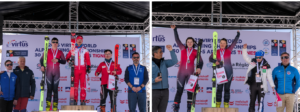
Winners of II2 Men’s and Women’s Giant Slalom at Tignes 2025. Photo Credit: Geoffroy Wahlen
Austria’s Anna-Sophie Friedl continued her dominance in the II2 women’s category, securing gold after her slalom victory, while her fellow Austrian Stephanie Schlömmer finished second, adding a silver to her previous Super G gold. Finland’s Bea-Anna Westerstrahle also continued her medal collection, earning her second bronze after a previous Super G podium finish.
In II2 men’s, Antoni Wiercioch (POL) made it two gold medals, following up on his Super G triumph. Austria’s Richard Strohhäusl, a consistent podium finisher, added third silver to her tally, while Markus Grameiser (Austria), already a gold medalist in slalom, secured bronze today in Gaint Slalom.
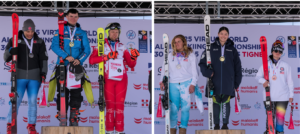
Winners of II3 Men’s and Women’s Gaint Slalom race. Photo Credit: Geoffroy Wahlen
In II3 women’s, Georgia Yuen (AUS) further solidified her reign by securing her third gold medal, having already triumphed in Super G and slalom. Behind her, Haleigh Bates (USA) clinched silver, adding to her Super G silver, while Elizabeth Whitehouse (USA) rounded out the podium, mirroring her bronze in Super G.
The II3 men’s race saw Ange Cazorla (FRA) climbing to the top of the podium finally after finishing second in both Super G and Slalom, adding a gold to his tally. Muhsin Murat Bingul (TUR), already a slalom bronze medalist, finished second, while Lukasz Fraczek (POL) grabbed bronze in his first podium finish of the competition.
With Tignes 2025 entering its final stages, the athletes will be competing in the Combined Super G and Slalom race, but one thing is certain: the athletes delivering consistent medal-winning performances have set a new benchmark for excellence in alpine skiing. With multiple double and triple medalists, this year’s championships will be remembered for the sheer dominance displayed on the slopes.
For full results, visit the competition website.

